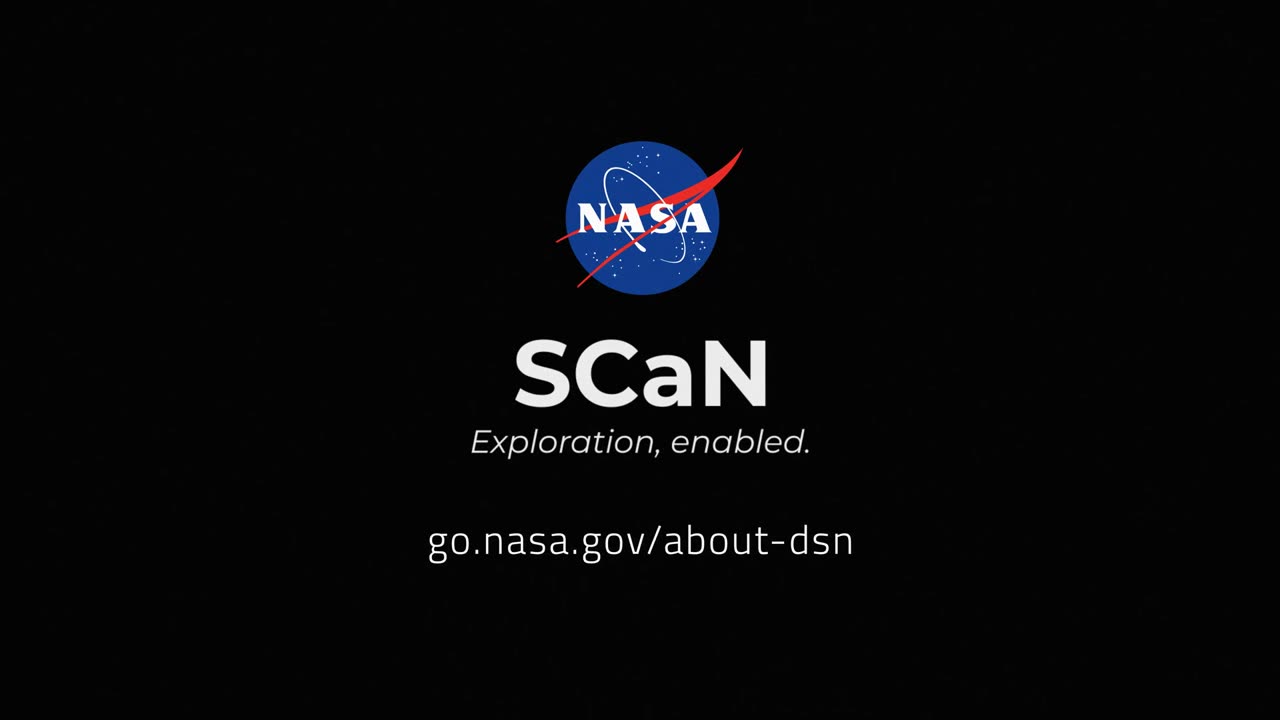Premium Only Content

How NASA Uses Gravity and Radio Waves to Study Planets and Moons
The Deep Space Network, NASA’s international collection of giant radio antennas used to communicate with spacecraft at the Moon and beyond, helps scientists and engineers use gravity and radio science experiments to learn more about our planetary neighborhood.
After reaching a spacecraft reaches its destination, it uses radio antennas to communicate with the Deep Space Network, which in turn transmits radio signals back to the spacecraft. Every spacecraft travels in a predetermined path emitting radio signals as it orbits around its target. Scientists and engineers can infer the spacecraft's location and how fast it's going by measuring changes in the spacecraft's radio signal frequency. This is made possible by the Doppler effect, the same phenomenon that causes a siren to sound different as it travels towards and away from you.
The Doppler phenomenon is observed here when the spacecraft and the Deep Space Network antenna move in relation to each other. Differences between the frequency of radio signals sent by the spacecraft as it orbits and signals received on Earth give us details about the gravitational field of a planetary body. For example, if the gravity is slightly stronger, the spacecraft will accelerate slightly more. If gravity is slightly weaker, the spacecraft will accelerate slightly less. By developing a model of the planetary body's gravitational field, which can be mapped as a gravitational shape, scientists and researchers can deduce information about its internal structure.
The Deep Space Network was developed by and is managed by NASA’s Jet Propulsion Laboratory (JPL) in Southern California. The antennas of the Deep Space Network are the indispensable link to robotic explorers venturing beyond Earth. They provide the crucial connection for commanding our spacecraft and receiving never-before-seen images and scientific information on Earth, propelling our understanding of the universe, our solar system and ultimately, our place within it.
JPL manages the Deep Space Network for the Space Communications and Navigation (SCaN) Program, based at NASA Headquarters within the Space Operations Mission Directorate.
-
 32:01
32:01
SB Mowing
25 days agoHer Tears Said It All: “My Prayers Have Been Answered”
5.06K22 -
 LIVE
LIVE
Price of Reason
8 hours agoTrump Means Business! Disney's F4 Hail Mary Pass! Assassin's Creed Shadows Art Book SUCKS?
1,563 watching -
 LIVE
LIVE
SpartakusLIVE
6 hours ago#1 Shadow BANNED Hero
710 watching -
 2:17:46
2:17:46
Kim Iversen
7 hours agoTrump To SMUG Netanyahu: Let's Clear “All” Palestinians From Gaza! | RFK Jr, Tulsi Move On To Round Two
56.2K228 -
 30:25
30:25
Standpoint with Gabe Groisman
1 day agoDemocrats Are Stalling Trump Appointments with Senator Rick Scott
80.4K15 -
 1:00:24
1:00:24
The StoneZONE with Roger Stone
7 hours agoAnthony Fauci’s Brutal History Of Animal Torture Exposed! | The StoneZONE w/ Roger Stone
53.7K17 -
 1:03:38
1:03:38
Man in America
8 hours agoUSAID Corruption, $21 TRILLION Missing, & the End of the US Global Empire?
36.3K25 -
 56:38
56:38
Flyover Conservatives
8 hours ago6 Steps to Take Advantage of Trump’s New Golden Age! - Clay Clark | FOC Show
26.5K2 -
 1:15:25
1:15:25
Glenn Greenwald
8 hours agoTulsi and RFK Jr. Approved by Key Senate Committees; Trump Meets Netanyahu: Wants to Cleanse Gaza; Pro-Palestinian Group Suspended at UMich | SYSTEM UPDATE #402
85.8K100 -
 1:43:57
1:43:57
Danny Polishchuk
8 hours agoThe Funniest Call In Show On Earth - Live From New York City's Best Comedy Club
48.6K1